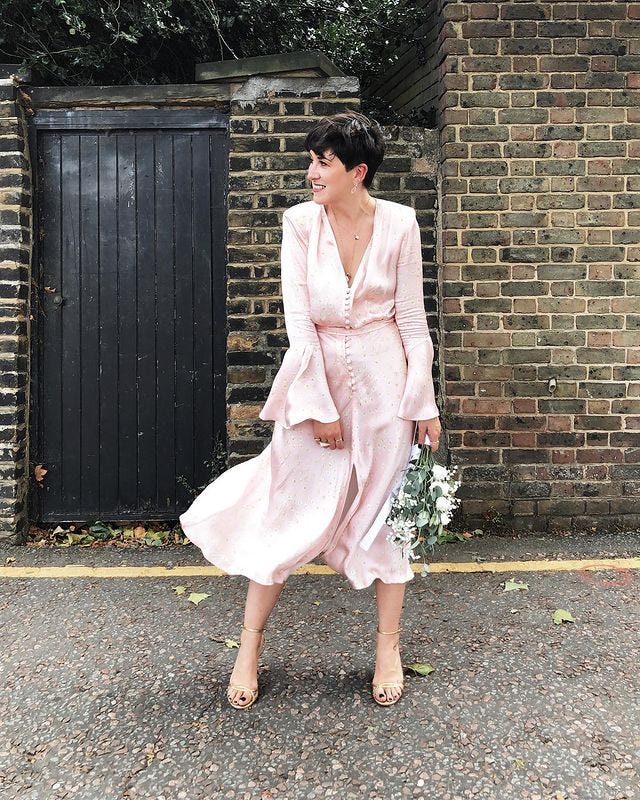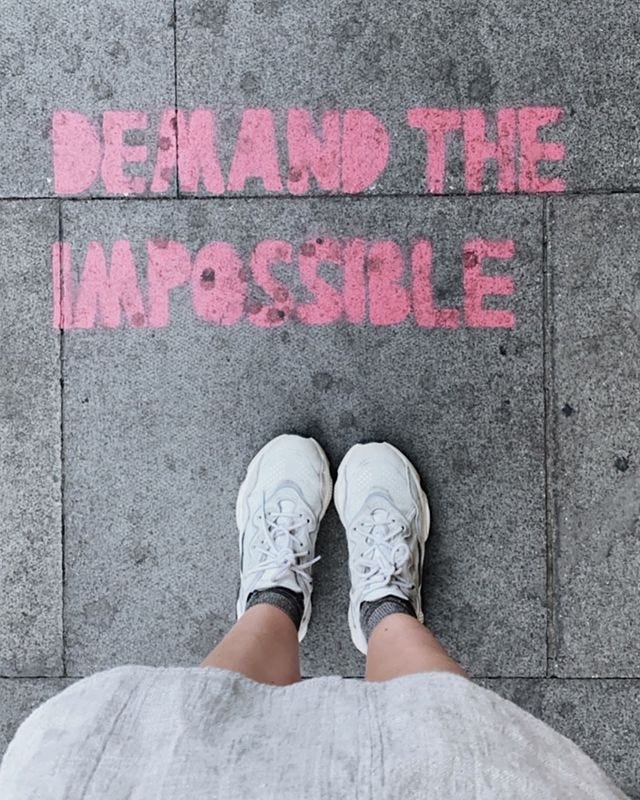Lauren Mahon: ‘We can’t keep silencing women’s pain’
The You, Me And The Big C podcast host speaks to Liz Connor about how we can empower women to talk about their health issues.
(Envato Elements)
“All the parts that make me woman were turning against me,” says presenter and women’s health activist Lauren Mahon, while recalling her battle with reproductive health over the last decade.
When the Girl Vs Cancer (girlvscancer.co.uk) founder was diagnosed with endometriosis in her late 20s, she felt a deep shame around the fact that her body wasn’t working in the way society tells us it should.
Mahon, who also co-presents the hit BBC podcast You, Me And The Big C, was then diagnosed with breast cancer at 31. She is determined to speak up about her varied experiences with health to empower other women to feel less fear and embarrassment around their issues.
“As soon as my hormones started kicking in, it’s always been a bit of a battle for me,” says Mahon. “In my early 20s, I had a Bartholin cyst on my vagina. We’re told that lumps are cancerous, so it was really scary for me – but it was only because doctors found a lump that I was eventually diagnosed with endometriosis.”
The painful disorder – in which cells like the ones lining the womb grow outside your uterus – will affect one in 10 women in the UK and Ireland. Despite its commonality, it takes women an average of seven years to be diagnosed with the condition, and research from a Bodyform (bodyform.co.uk) has shone a light on the psychological impact of the disorder.
Two-thirds of women (68%) who experienced endometriosis, as well as fertility issues, miscarriage and menopause, said that being open with family and friends helped them cope. Yet the same research found that a third of women feel society wants them to keep silent about their experiences (21%).
“Women really struggle to be heard when it comes to their health,” says Mahon. “They’ll often go to the doctor in pain, but be told it’s PMS or Crohn’s Disease, and be sent away with the wrong diagnosis.
“I was suffering silently with endometriosis between the age of 19 to 25. Back then, when I was struggling to be heard, the conversation wasn’t happening at all.”
Mahon says that at the peak of her health battle, she felt completely lost, especially dealing with endometriosis as a young woman. “I felt a lot of shame around it. I saw myself as weak, as I was unable to deal with my regular periods. I was going to walk-ins and the advice I was getting, was that they were ‘normal’ period pains.
“There were days where I was shaking and trembling on all fours and having to drag myself to the bathroom and hold on to the side of the bath to brace myself, just to go to the toilet, because the pain was so excruciating.
“It impacted my job and it was difficult to explain to my boss why I needed to take time off, because I couldn’t get any answers from the doctor. It put pressure on my relationship, too. All this stuff was going on in my life and I blamed myself, because I felt so much shame around the health issues I was experiencing.”
If she could give advice to any woman struggling with what they believe may be undiagnosed endometriosis, it would be to push for a gynaecological referral from your doctor, and to speak to your friends, family and others about your experiences.
“We know that a third of women say they want to keep quiet because it’s an uncomfortable topic. But we need to ask why these subjects are uncomfortable. These are completely normal health issues.
“I talk about it because I know how difficult it was for me. I felt like a freak and like something was wrong with me.
“I believe we live in a patriarchal system. If this pain was affecting men, there’d be a test for endometriosis that didn’t involve going through an invasive and painful laparoscopy. But the fact of the matter is, we can’t keep silencing women’s pain.”






